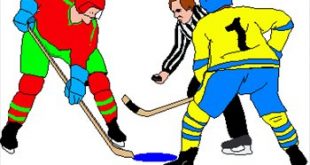
What can be done about stamp sands left over from the Copper Country’s mining boom?
That’s the question a team of students from Lake Linden-Hubbell Schools (Siona Beaudoin, Beau Hakala and Gabriel Poirier) sought to answer in this year’s eCybermission competition.
The goal was to find a cost-effective way to remediate stamp sands in the local area without covering them with topsoil.
Lake Linden-Hubbell 8th Grader Beau Hakala said, “We tested different types of plants in different amounts of stamp sand to see if we could cover the stamp sands with plants rather than covering it with topsoil.”
They tested trefoil, clover, alfalfa and fescue to see which one worked best.
They then made their virtual presentation for the regional competition at Michigan Tech.
Lake Linden-Hubbell 8th Grader Siona Beaudoin said, “You have to have your mission folder, so that’s what your experiment was, your team collaboration, so how all the team members worked together, and your community benefit, which is how your experiment would benefit the community.”
The team took first place in the ten-state region and are now headed to nationals in Virginia, June 26th through the 30th.
eCybermission is a national science and engineering competition–over 28,000 students competed last year.
The Lake Linden-Hubbell High School 8th grade eCYBERMISSION (https://www.eCYBERMISSION.com) team, the Whiz Kids, competed in eCYBERMISSION for the second time in two years. The team consisted of Siona Beaudoin, Beau Hakala and Gabriel Poirier. This team made it to the regional level the past two consecutive years. Their virtual presentation report were rated exceptional which resulted in the team moving on to the national competition this year. Their goal was to develop an experiment where the process or results could benefit their community. Since copper mining is what the Copper Country is known for, they wanted to complete an experiment that involved the area’s history. They learned that as a result of mining, there was a great deal of stamp sand near Lake Superior and other local lakes. They noticed that few plants grew on the sands. They and wanted to know why that occurred and what plants would grow on the sands.
eCYBERMISSION is one of several science, technology, engineering and mathematics (STEM) initiatives sponsored by the U.S. Army Educational Outreach Program. eCYBERMISSION, administered by the National Science Teachers Association (NSTA), promotes self-discovery and enables students to recognize the real-life applications of science, math, technology, and mathematics (STEM). eCYBERMISSION challenges students in grades six through nine to develop solutions to real-world problems in their local communities.
Their national finalist project involved two experiments. The first was to determine which plants (fescue, red clover, alfalfa and trefoil) would grow best in different mixtures of stamp sand and topsoil. With this experiment, they found that alfalfa and fescue grew well in stamp stand with no topsoil added. For their second experiment, the team wanted to know for alfalfa and fescue, if the plants would still grow if they were stressed. They tested the impact of wind, high water table and wheels. These were selected because these stressors typically occur on stamp sands. The sands are located near lakes which can have high winds and a high water table; 4-wheelers are ridden frequently along the sands. The team found that although the plants were subjected to the stressors, they still grew. The ones exposed to wind grew, but were slanted. The plants exposed to the wheel stressor were compacted, but still grew. The high water table caused some of the alfalfa leaves to turn yellow, but not the fescue.
From mid-October through February, they worked about 3-10 hours after school to complete their research and experiments. Their science teacher, Nicholas Squires, was always available to help them. The Lake Linde-Hubbell High School supported their work through providing materials for their experiments and space for them to work.
The national competition will be held in Leesburg, VA from June 26 -30. There, the team will participate in STEM Challenge Workshops led by U.S. Scientists and Engineers, an inventor and patent workshop led by the National Inventors Hall of Fame, a tour of the Capitol, visits arranged by NSTA to speak with their Congressional Representatives, National Judging Day, and the Awards Luncheon where National Winners will be announced. Additionally, there will be a People’s Choice Award where people will be able to virtually “vote” for a given team. We will be providing the link through the Lake Linden-Hubbell School’s web page on the day of voting (http://www.lakelinden.k12.mi.us).
The team received a great deal of support from Michigan Technological University. Gretchen Hein, faculty in Engineering Fundamentals, and Ryan Knoll, 3rd Year Chemical Engineering student, advised the team. They will be travelling with the team and participating in all the eCYBERMISSION events. The regional competition involved a virtual presentation. This occurred at the Jackson Center for Teaching and Learning under the direction of Jeffrey Toorongian. The Departments of Chemical Engineering and Engineering Fundamentals will be supporting Ryan Knoll’s travel and other eCYBERMISSION expenses.
 Keweenaw Report Your Source for Local News and Sports
Keweenaw Report Your Source for Local News and Sports





